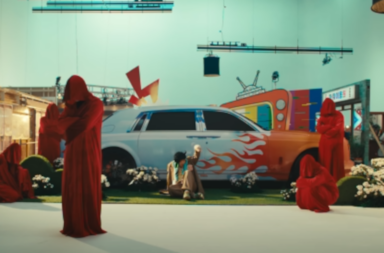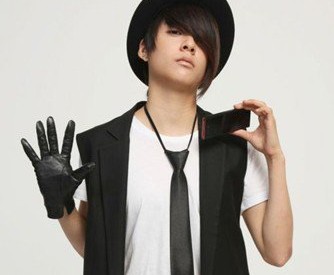 Androgyny is something that is rarely found in Western pop culture. Aside from maybe David Bowie, there are very few instances where male and female celebrities embrace the aesthetic norms of the opposite gender. That is certainly not the case when it comes to K-pop, and perhaps a lot of us are drawn to it for that reason. Who are your favorite androgynous idols? What is it about them that appeal to you?
Androgyny is something that is rarely found in Western pop culture. Aside from maybe David Bowie, there are very few instances where male and female celebrities embrace the aesthetic norms of the opposite gender. That is certainly not the case when it comes to K-pop, and perhaps a lot of us are drawn to it for that reason. Who are your favorite androgynous idols? What is it about them that appeal to you?
Lindsay: If we are going by the standards set by my American peers, all of the male K-pop idols I like are my favorite “androgynous” ones. I can’t tell you how many times I’ve had to say “that’s a boy” when someone’s gotten a peek at my phone. If you consider the standard of masculinity in pop culture in the US, every single male Korean I like is androgynous. With their delicate features, stylish clothing, and heavy eye-makeup I guess I can see how someone completely unfamiliar with Korean pop culture would be confused. Trouble is, I think of male K-pop idols as very masculine, and therein lies the cultural conflict.
So to answer the real question, my favorite idol that I actually consider to be androgynous is Amber of f(x). Amber readily admits to being a tomboy since childhood, so her masculine “image” doesn’t feel contrived. Amber is also playful and casual in a way some other female idols aren’t which both makes her seem slightly more like “one of the guys” and also just makes her an awesome person. But let’s be honest, Amber appeals to me physically because she has the same aesthetic as a male idol, from hair to fashion to dancing.
Another favorite of mine is Rokhyun from 100%. He doesn’t go out his way to look feminine; he just does. He has one of the cutest faces I have ever seen in my entire life and has a lot of natural aegyo, which makes it very hard to tell sometimes if he is a boy or a girl — I think it might also be the full, pouty lips. He has a high-pitched voice, both speaking and singing, so that adds to the androgyny too. But then he takes off his shirt and he has completely ripped chocolate-abs, so that kind of ruins the femininity.
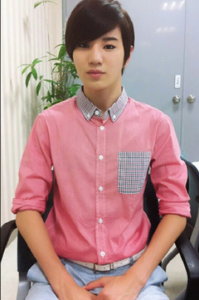 Pat: My favorite androgynous idols are definitely Infinite’s Sung-jong and Nu’est’s Ren. I find that both of their features are masculine AND feminine at the same time — it all depends on the hair they have. With both Sung-jong and Ren, my favorite thing is that they both don’t care that they look feminine; in fact they both flaunt it.
Pat: My favorite androgynous idols are definitely Infinite’s Sung-jong and Nu’est’s Ren. I find that both of their features are masculine AND feminine at the same time — it all depends on the hair they have. With both Sung-jong and Ren, my favorite thing is that they both don’t care that they look feminine; in fact they both flaunt it.
Sung-jong readily admits that he is more attractive than several girl group members. His body is slim and he has this air around him that makes him seem so delicate. And then one of his Infinite hyungs pushes him to the limit and his sharp tongue goes into action. What appeals me to him is that even when Sung-jong is teased about his appearance, he plays it off and owns it. But then, this is the idol that got banned from dancing to girl group songs by his CEO.
With Ren, despite his looks, he is arguably one of the most competitive members of Nu’est. In fact, if you take away his looks and judge by his attitude and thinking, he definitely falls under the societal construct of what being masculine is. And then when you get to his looks, he is definitely feminine. I love that paradox about him and that he carries it in a way that would make even Heechul proud.
For female androgynous idols, Amber readily comes to mind. Her appeal to me is the exact same reason as Lindsay: it’s not image forced onto her, it’s just Amber Liu being Amber Liu. There is no pretense; she is cool and stays herself be it with male idols or female idols.
But really, when it comes to male K-pop idols, 90% of them would be judged as androgynous just because of what Western society has told us a man is. A man is said to be strong person with muscles and keeps their emotions in check. And yet in K-pop, we all can easily name those who easily gets carried away by their emotions. Chances are if a person’s first introduction to K-pop would be, say, a video of Jong-hyun crying his eyes out, then they wouldn’t think he was masculine at all despite him filling out most criteria of what a masculine person is. Also, we can easily name several who, despite not having a body that looks like it, is masculine — but then he also likes dancing to girl group songs and does it better than all of us.
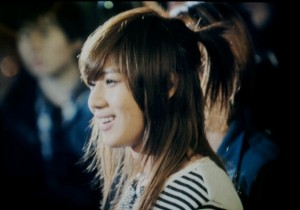 Leslie: What’s funny about this discussion is that K-pop has a plethora of male idols with an androgynous image, some who even embrace their “femininity” — Jo Kwon comes to mind — but there’s a significant difference in the number of female idols who are androgynous. While not all groups are necessarily girly or cutesy, most maintain a distinct “feminine” image, be it sexy, cute or fierce.
Leslie: What’s funny about this discussion is that K-pop has a plethora of male idols with an androgynous image, some who even embrace their “femininity” — Jo Kwon comes to mind — but there’s a significant difference in the number of female idols who are androgynous. While not all groups are necessarily girly or cutesy, most maintain a distinct “feminine” image, be it sexy, cute or fierce.
But when I got into the K-pop fandom, which was right when f(x) was debuting, one of the things that appealed to me was Amber’s image. I myself have always been androgynous — I have a boyish haircut and wear sneakers and snapbacks often — so I loved that. I was disappointed to find out that Amber is more of an anomaly because even though there are a handful of other female idols who have an androgynous image, it definitely seems contrived with them. I had to look to Taiwanese girl group Misster for more female androgyny.
On the side of male androgyny, what solidified my love for K-pop was several months after f(x)’s debut when Shinee released “Lucifer.” I fell head over heels for Taemin with his long hair, and I never looked back. That is still my favorite era. I always remember when I brought a collage of Taemin with that hairstyle to my hairstylist, and she referred to him as “she.” I didn’t correct her because I didn’t really want to explain to her the differences of gender standards in Korea versus the United States, and because I thought it was funny.
Another fun anecdote: my mother once said that she thought Eli looked like a woman when I was watching a U-KISS video, and it totally threw me because he is one of the most masculine idols to me. But just like Lindsay and Pat have both said, it’s the standards of masculinity that are different, even among Western countries. My family is Hispanic, and the distinction between masculinity and femininity is arguably greater in my culture in comparison to American standards.
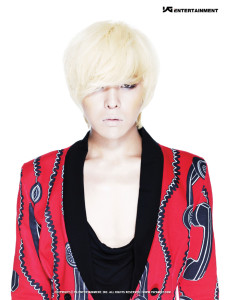
Also, in Western entertainment, there are more female celebrities embracing androgyny than there are male celebrities, which makes idols like Amber not so strange but those like Sung-jong and Ren totally weird. Right off the top of my head, I can think of Ellen Degeneres, Tilda Swinton and Agyness Deyn, but I can’t think of any male celebrities. Either way, it’s interesting that male idols embrace their “femininity” more than female idols embrace their “masculinity,” whereas in the United States it seems to be the reverse.
Miyoko: My favorite androgynous idols are the ones that embrace androgyny or don’t seem to care; that attitude appeals to me.
Many of the male idols I like look “feminine” by Western standards, but assert their “masculinity” at every turn. Because they do this, it says to me that they want to be put into the socially-defined “male” category, so that’s how I view them. There are a few female idols that are androgynous in appearance, but it comes across as a concept. I was struck by OneKet and Aram from Global Icon when they debuted, but since their company stated they were doing a tomboy image for their first single, I don’t know if their style is a one-time thing. Time will tell.
My favorite would probably be G-Dragon, who is very fluid in his appearance and consciously plays with it. I like Heechul too for the same reason. And, as everyone mentioned, Amber is the ultimate at just being her awesome self.
Laverne: The only androgynous idols I know are Ren from NU’EST and Amber from f(x). But to be honest, I don’t know much about either. It has nothing to do with their androgyny; rather, their groups don’t interest me so I’ve never felt drawn to learn more about them.
But I do like the fact that we have androgynous idols because they defy the strict gender identities and roles that have persisted for too long. I won’t go on a tangent about the systems that have enforced this but I think it’s important to acknowledge that it’s okay for both sexes to like or do something that is traditionally viewed as for the opposite gender. I think it’s great that these idols not only express both masculine and feminine traits, but own it as well.
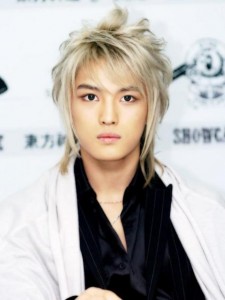
Jaclyn: My favorite androgynous idols would have to be Nu’est’s Ren and Super Junior’s Heechul. Heechul’s flamboyancy and personality aren’t for everyone, but he cracks me up. I love his “who cares” attitude when it comes to his non-traditional ways. Honestly, I don’t know much about Ren personality-wise so my appreciation of Ren is purely on the superficial side. He’s just so darn pretty.
I’d have to say what’s appealing about androgynous idols is the embracing of the image. I really dislike the pressure of gender roles and the shame put on those who flit in between them, so for certain idols to carry it proudly is awesome to me. I’m actually not big on androgyny in K-pop because it’s often feigned for publicity. Also, it tends to be the butt of too many jokes. Still, I love those idols that wear it like it’s no big deal (which it isn’t) like Amber and Sung-jong.
Nicholas: I must admit to being rather cool about androgynous idols, given how after so many years, I still struggle to tell apart the guys who’re so pretty they look like a female, and those females who happen to have a sharp feature here and there that give them a hint masculinity.
Of course, none of this gender-bending helps with my ego (why are there some guys/gals who enjoy positive points on both sides of the ledger), or explaining to my mum that the whole gender-bender movement is “in vogue” and “not sinful”.
Still, as long as I get my fair share of pretty people, why should I complain too much?
Jaclyn: Nicholas, you’re not the only one. There are plenty of times when I thought he was a she or she was a he. Just recently, a friend of Amber’s posted pictures of them with Henry and some backup dancers. I had trouble differentiating her, but fortunately, I knew her face well and her legs are a dead giveaway.
And I’ve grown past comparing myself to anyone now, and have accepted that I’m really really ugly. Like so ugly that I walk into a room and not one, but two babies start crying. In all seriousness, practically everyone experiences that. How in the world are Jaejoong and Taemin prettier than I am? I just have to accept that I wasn’t lifted off the pages of a manga.
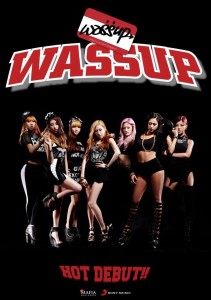
Mark: Woh, Jaclyn, let’s not let our insecurities get the best of us. I’m sure a lot of people (guys and girls) feel less pretty than Jaejoong.
What I quite dislike is the association of hip-hop with masculinity and how it forces a specific image on certain groups and idols. Like many of you mentioned, androgyny comes off as less appealing when it becomes an aesthetic forced on certain individuals, and this can’t be more true than when it comes to female rappers, even when it makes them look a heck of a lot worse (ahem, Woori of Rainbow)! Because, surely, the only way a female rapper possesses any form of legitimacy is if she dawns short hair and/or tomboyish tendencies.
With the hip-hop aesthetic currently enveloping the K-pop scene, many female idols are forced to adapt more tomboyish wardrobes without necessarily having to adapt the personality. Hip-hop-inspired rookie groups like Global Icon and Wassup dress its members in tomboyish clothes so that they look the part but it’s clearly only a concept, if not a gimmick, to bring the group attention. With that said, I’m going to completely contradict myself and say that I like Jucy of Evol and Jimin of AOA because they are decent idol rappers and I’m glad their semi-androgynous looks allow them to stand out.
Nicholas: Mark, so can we argue on the flipside for all the “pretty boys”, like Ren, Rokhyun, and in the past Taemin? They do have that guy-ish air around them, but end up being marketed to girls as “guys who play the feminine archetype well”, and seeing how the girls practically love this sort of thing (I have a friend on Twitter who goes into sugar shock when she sees Rokhyun do a Sistar cover), it makes the role practically an obligation in almost every new guy group these days.
Sahar: It would be unfair to characterize the west as particularly closed-minded on gender-bending. RuPaul is an American icon who has been around for decades, and also the host of a very popular drag show. Androgyny and cross dressing are nothing new in the west. In addition, regardless of what Macklemore might have everyone think, there is a thriving queer/gender-binary challenging the hip-hop scene in the US. Yes, there is a mainstream take on things and Frank Ocean‘s coming out process shows we have a long way to go when it comes to unpacking concepts of masculinity/queerness in the American community, but in the shadows of that mainstream, there is a thriving alternative that we should not ignore.
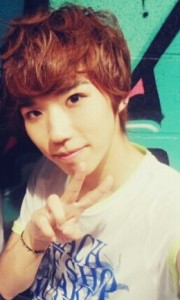 That said, one of the most attractive features of contemporary K-pop is that unlike a lot of artists and the industry in the West, K-pop does not seem obsessively tied to outdated and very western essentialist ideas of gender and sex identity. Taemin or G-Dragon (just to name two examples out of many) are just doing their thing instead of performing to anyone’s standards about what men look like. They are not looking at gendered norms for how they have to be styled. They are looking at what is creative and interesting in any particular moment. My reaction to that? Thank [deity of your choice] that somewhere in this world, the pop music industry isn’t boxing people into a gender presentation binary that isn’t real.
That said, one of the most attractive features of contemporary K-pop is that unlike a lot of artists and the industry in the West, K-pop does not seem obsessively tied to outdated and very western essentialist ideas of gender and sex identity. Taemin or G-Dragon (just to name two examples out of many) are just doing their thing instead of performing to anyone’s standards about what men look like. They are not looking at gendered norms for how they have to be styled. They are looking at what is creative and interesting in any particular moment. My reaction to that? Thank [deity of your choice] that somewhere in this world, the pop music industry isn’t boxing people into a gender presentation binary that isn’t real.
Erika: I think that, according to Western expectations of gender, the overwhelming majority of male K-pop idols would be considered androgynous. But I don’t know that that has to do with K-pop challenging the gender binary. I think this has a lot to do with the “objectifiability” of K-pop idols, as is the fetishization of cuteness. Part of femininity as a social construct in nearly every culture are passivity, perceived weakness, harmlessness, and allure based on the preferences of the observer. And, of course, with cuteness, you have a performance of childishness, a major feature of which is a lack of agency. K-pop idols are someone else’s moneymaker whose worth is based on the ability to be non-threatening fantasy fodder for their audience, which translates into money spent. No wonder nearly EVERYONE in K-pop is what the West would consider hyper-feminized (women, too). This isn’t unique to K-pop. Teen heartthrobs in the West tend to be more feminine, as they have to appear innocuous and available for objectification too.
(Images via Pledis Entertainment, YG Entertainment, SM Entertainment)
